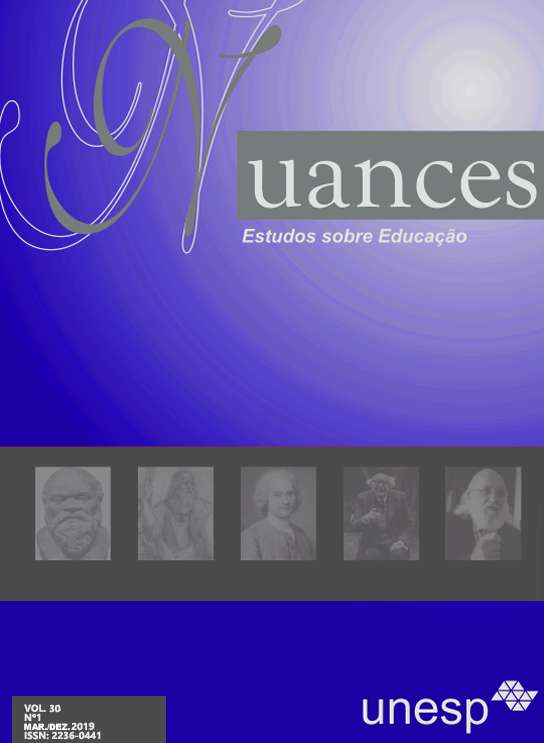PEDAGOGICAL CONDITIONS OF SOCIAL-PEDAGOGICAL ADAPTATION OF THE FIRST-YEAR UNIVERSITY STUDENTS UNDER MODERN REALITIES
DOI :
https://doi.org/10.32930/nuances.v30i1.7094Mots-clés :
adaptation, self-development, value significance, motivation, anxiety, self-regulation, productivityRésumé
The article shows the expediency and significance of the work on social-pedagogical adaptation of first-year students of higher educational institutions under the new sociocultural conditions of our time. The search for effective ways of harmonizing the relations (interaction) with the social environment, being the basis for successful socialization and professional training of a future specialist, plays an important role under imperfect organizational and pedagogical support of social-pedagogical adaptation of the first-year students of higher educational institutions. The objective of the research is to theoretically substantiate and experimentally verify the effectiveness of pedagogical conditions of successful social-pedagogical adaptation of the first-year students of higher educational institutions. The research uses theoretical methods (theoretical analysis, generalization and synthesis), empirical methods (observation, questioning, conversation); experimental work; the Student’s criterion and correlation analysis were used as methods of mathematical processing of experimental data. To provide the process of social-pedagogical adaptation of the first-year students, the authors propose the following pedagogical conditions for successful adaptation of the first-year students, allowing, from the viewpoint of integrity of the social-pedagogical adaptation processes, to design and implement the group and individual strategies of the personal trajectories of students’ self-development, and to simultaneously solve the tasks of social, personal and professional development of future specialists: 1) the ability of the university professor to assist a student in their self-cognition, stimulating their personal self-development through motivating their interest in the chosen profession basing on pedagogy of cooperation, creating adequate conditions for expanding the possibility of personally significant and professional qualities of each student; 2) organization of an educational environment aimed at reducing anxiety, apprehension, inner discomfort, where a student realizes themselves as a team member, feels comfortable, which ensures the transformation of the structural components of professionalism as socially important qualities into personal ones; 3) social-pedagogical adaptation of the first-year students becomes an integral part of the university, when the student, without continuous internal and external conflicts, successfully carries out any activity in the educational environment in the context of personality-activity approach, and serves as a means for students to develop adequate self-esteem, advanced self-regulation, and high productivity, which is the basis for the development of activity, independence, and creativity.
The authors provide the ways of implementing the revealed pedagogical conditions and the results of the formative experiment, which lead to the following conclusions: active social-pedagogical intervention, timely correction of the educational process, aimed at effective adaptation of the first-year students, through personal interaction basing on pedagogy of cooperation, ensures rapid adaptation of students in a new educational environment, which leads to value attitude to their future profession.
Téléchargements
Téléchargements
Publiée
Numéro
Rubrique
Licence
Atribuição-NãoComercial
CC BY-NC
Esta licença permite que outros remixem, adaptem e criem a partir do seu trabalho para fins não comerciais, e embora os novos trabalhos tenham de lhe atribuir o devido crédito e não possam ser usados para fins comerciais, os usuários não têm de licenciar esses trabalhos derivados sob os mesmos termos.





